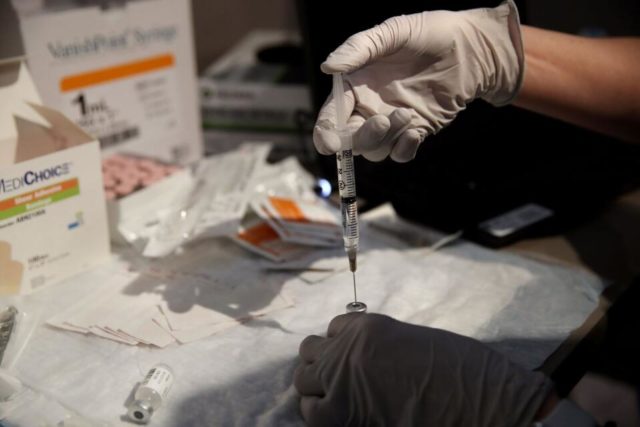Not all all South Africans are on board with President Cyril Ramaphosa’s vaccine roll-out strategy
WHILE addressing the nation on Monday night, President Cyril Ramaphosa shed some light on South Africa’s Covid-19 vaccine roll-out.
The president went into more detail after Health Minister Dr Zweli Mkhize announced that the country would procure one million doses in January, followed by 500,000 doses in February from the Serum Institute of India (SII).
While the vaccine strategy bodes well for achieving herd immunity, not all all South Africans are on board with the vaccine roll-out.
Recent data from fintech company CompariSure suggested that a staggering 52% of South Africans don’t want to take the vaccine.
When asked why, 34% cited “side effects” as their main concern.
Other commonly stated reasons for rejecting the jab included “religion” (13%) and “cost/price” (16%); with approximately 40% of respondents stating “other”, with reasons like “fear of needles” and “government tracking” being supplied.
“From our most recent survey, we saw that just over 50% of respondents answered ’no’ to a direct question on whether they were willing to get the vaccine when it became available,” said Matt Kloos, chief financial officer of CompariSure.
Ramaphosa addressed these common concerns in his national statement, highlighting that many South Africans are routinely vaccinated, and vaccination is nothing to be feared.
“In addition to securing sufficient vaccine shots, it is clear the government needs to continue educating South Africans on the importance of getting vaccinated for Covid-19,” added Kloos.
Ramaphosa said that South Africa had secured 20 million doses to be delivered in the first half of the year.
The second part of the strategy, had three phases, he said, with phase 1 prioritising 1.2 million front-line health workers as recipients of the vaccine.
Phase 2 would focus on essential workers, including teachers, police, and municipal workers. People in institutions such as old-age homes and prisons, as well as those over 60 and people with morbidities would also be prioritised, the president said.
Phase 3 would see the remaining adult population of about 22 million people receive vaccinations.
The third part of the strategy would be distribution throughout the country, ensuring that all those identified would be administered the vaccine.








